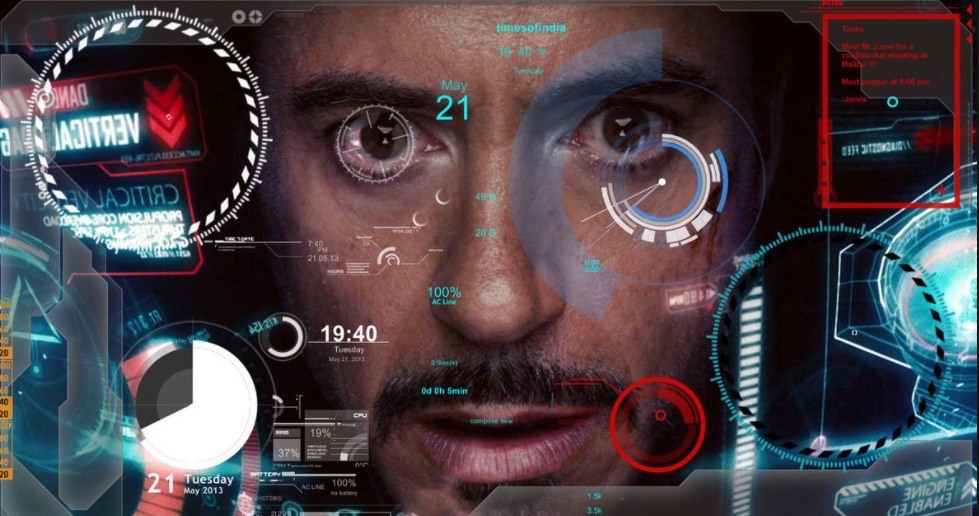
Photo credit: Wallpaper Kid.
Imagine a self-checkout counter that can scan your apples and say what variety they are, using computer vision and not barcodes. That’s one of the use cases of the technology developed by Bangalore-based Hyperworks. This startup uses artificial intelligence (AI) in the perishable food market to make business easier for merchants.
Hyperworks is one of the eight deep tech startups picked from close to 1,000 potentials by global retail giant Target’s accelerator in Bangalore. This is the biggest batch of startups that Target Accelerator has onboarded since it started operations in the tail end of 2013.
Target has worked with 22 startups across four batches so far, and the reason why it has grown bullish now is the track record, says Rakesh Mishra, VP of marketing for Target. “Some of the earlier startups we worked with have become strategic partners for us. For example, fintech startup Discover Dollar has become part of our global Target ecosystem,” Mishra says.
Discover Dollar helps retailers “detect and resolve overpayments, missed discounts, and un-recovered vendor incomes.” Its algorithms can scan through data, including unstructured data like email and contracts, and notify the right people within the company about overpayment and other issues.
House of Blue Beans is another Bangalore startup which is now one of Target’s strategic partners. It uses virtual reality, augmented reality, and computer graphics to create a better shopping experience for a customer. The startup is helping Target with its recently launched “digital shoppable rooms.” These are virtual homes, created on a computer, where the rooms feature products you can buy from Target. A guest can wander in and out of the rooms, click on whatever catches her fancy to add them to her shopping cart, and buy it there.
Two other startups from Target’s previous batches – Find Me A Shoe and Story Xpress – got selected by US accelerator Techstars.
These successes prompted Target to pick more startups – each of them with unique capabilities that are relevant to global retailers like Target. Here’s the new batch of eight:
Cogknit
Cogknit applies machine learning to text, speech, and computer vision. Target wants the shopping experience to be more accessible and inclusive for all its customers, including the visually challenged. It runs a lot of video content in its stores, and wants to make sure those have scripts that a visually challenged customer can follow. At Target’s massive scale, it is manually intensive work to generate scripts for all of its video content. That’s where Cogknit can help.
“We are looking to leverage Cogknit’s AI tech platform to be able to have a frame-by-frame account of the video on text,” Mishra explains. Cogknit is betting that voice-based transactions are going to disrupt industries.
Jumper.ai
Commerce has definitely arrived in social media and more and more people are buying and selling over Facebook, WhatsApp, and YouTube. Jumper.ai wants to make social commerce easier through hashtags.
Roughly, this is how it works: you get to pick a unique hashtag for a product that can then be used across Facebook, Instagram, YouTube, and Twitter. As soon as users comment on the post, a Jumper.ai chatbot pops in and guides them to buy the product right there.
Cognitifai
Cognitifai uses computer vision to index and make sense of physical world phenomena. Imagine a shelf stacked with mineral water bottles. A guest picks one from the lot. Through computer vision, Cognitifai can deduct one bottle from the store’s inventory. That way, the store can replenish the shelf much quicker than depending on a manual store worker to come in and check if the store is running out of stock. This enables real-time intervention to facilitate inventory management.
Cognitifai is also working on tech that can be applied for surveillance, healthcare, and hyper-local intelligence in smart cities and retail enterprises.
Streamoid
Streamoid is an artificially intelligent stylist. It milks image recognition technology to squeeze out product and style information from pictures, feeds that to its AI engine, and produces contextual and personalized results for fashion shopping.
Streamoid is focussed on the fashion and retail industry and believes online product recommendation could do with some more disruption. “It [Streamoid] understands natural language, images, voice, and the context of the fashion query. It knows the difference between ‘dress shirts’ and ‘shirt dresses’. You can interact with it like you would with a highly knowledgeable fashion sales assistant,” the company says.
Light
Light or Light Information Systems has been researching and developing in the field of deep learning and natural language processing for four years. It built a product called Light NLPBots that can decipher the meaning of text and images and helps businesses automate interactions with their consumers. The company says NLPBots can work with structured as well as unstructured data intelligently both for consumer as well as enterprise products.
Moonraft
Moonraft Innovation Labs is not yet telling much about what it’s up to on its website. But going by Target Accelerator, the Moonraft team has created an AI-powered shopping assistant for trial rooms and is “working towards advancing human experiences across the digital and physical.”
vPhrase
AI startup vPhrase takes in dry boring data and translates it to narrative English for easy digestion. In other words, it helps companies understand their data better by explaining numbers in words.
See: Meet the AI startup that translates everyday graphs into captivating stories
Hyperworks
Hyperworks uses AI, imaging, and product design to solve business problems within the fresh produce industry. Remember the apple example? “We picked Hyperworks because of the differentiating experience it can offer our customers in the Target stores,” Mishra says.
Besides these eight startups, the accelerator will give a leg-up to Pal’s Prompt, an affiliate marketing product for Facebook developed by an inhouse team of Target.
This post 8 deep tech startups from India to watch appeared first on Tech in Asia.
from Tech in Asia https://www.techinasia.com/8-deep-tech-startups-india-to-watch
via IFTTT
No comments:
Post a Comment